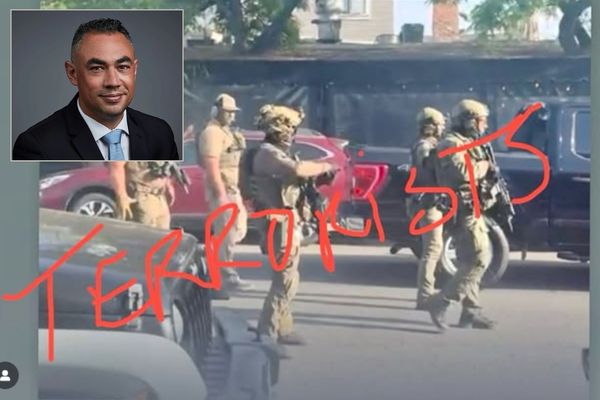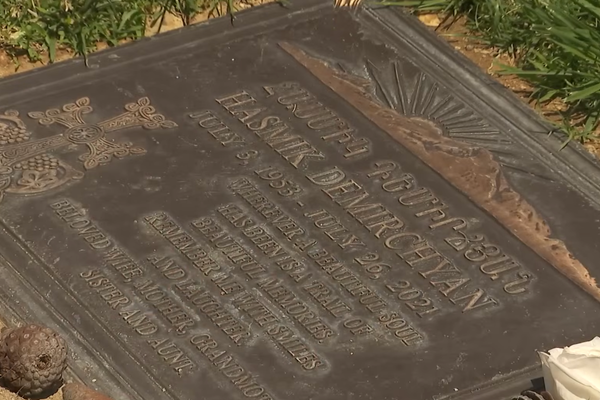
You’ll notice something in a lot of modern post-apocalyptic games. Yes, there are the murderous gangs, the decaying wrecks and savage monsters, but that’s not what these games tend to linger on. Just look at the twitter account of the ill-fated Fallout 76: it’s all gangs of friends wearing weird hats and building clubhouses together. Same goes for the upcoming Rage, a neon-drenched Andrew W.K.-scored festival of death and absurdity. Far Cry: New Dawn looks to be following a similar path with a wild, overgrown apocalypse that looks more inspired by Lisa Frank than anything else. Even something like Mad Max: Fury Road–by no means a friendly depiction of the apocalypse–tends to emphasize the absurd and the baroque even inside of a brutal world.
This isn’t really the case with the Metro series, developed by Ukranian developer 4A Games, which recently fled war in its home country to set up shop in Malta. The world of Metro is traditionally cramped, unpleasant and constantly lethal: by way of comparison, the Fallout series uses bottlecaps from a popular pre-war soda as currency. Metro uses bullets. I have to imagine the latter scenario is more likely.
I recently spent two hours in Metro’s Capsian Desert area: quite lovely when it’s not swarming with monsters and raiders, but unfortunately swarming with monsters and raiders. I spent much of that time dying: running from hordes of nasty, scuttling zombies, eaten by mutated dog-creatures or taking a wrong step and alerting a bandit camp before I was ready to take them on. The Caspian is a late-game area, but there’s no real power fantasy here: everything is here to kill you and will do so if you’re not careful, quickly. At first, my handy shotgun was able to take care to the dog-creatures, but I quickly ran out of bullets and found that whacking them with the butt of my gun wasn’t quite so effective. Another death of many.

The game appears to be what you could consider a wide corridor, not unlike the recent Tomb Raider games. It offers directional choice, branching paths and many approaches to where you’re going, but takes on a kind of linearity by sending you in a particular direction and after a particular thing. In my case that was a lighthouse where a survivor was holding off a gang of marauders from an old lighthouse looking out over the dried-up sea. Things became more linear after that, sending me first down a series of tunnels and then into an encounter taking out her attackers one-by-one. The attackers already weren’t fairing too well: a few of them had set themselves on fire in the tunnels, and I finished them off as they lay on the ground. Again, this is the apocalypse. It is not pleasant.
Things felt more like a traditional Metro game after that, sending me down into a more contained, linear trek through an abandoned communication station. The latter was more interesting, dipping into survival horror as I frantically tried to fight back giant spiders by shining a light in their direction: by the end of the encounter, I was out of bullets and low on health, crouching in a corner with a lighter and a flashlight, trying to stay alive. I didn’t manage to do so before the session ended.
In both the open and more contained portions, it’s my characters relative weakness that proves the most interesting. Many games like this–Far Cry 3 and later feel like the best comparisons– emphasize the fun and power to be had in these settings, but the open portions of Metro: Exodus feel more inspired by the hostile and indifferent world of Far Cry 2. It’s a survival game in these portions, where you need to carefully be aware of powerful enemies at all times, keeping a close watch on your resources and engaging only when you absolutely know you have the upper hand. The game spiralled out of control a little bit when I had to interact with its sprawling inventory and crafting system, but one hopes that will be more manageable when you start from the beginning. Neither me nor my guide knew how to refill the air tank on my pneumatic gun.
I’m interested in this one. The wide corridor approach allows for the sense of freedom without the aimlessness of true open world games, something I’m in favor of. The real question will be how well the game walks the razor’s edge of toothy, dangerous and frustrating. Will the surprise of being set on by a pack of wild dog mutants still be exhilarating ten hours in, or it will just be annoying? I don’t know, but that in itself is exciting. Metro is a series with all the visuals of a AAA game but a different design ethos, and I’m interested to see how things will play out.
Metro: Exodus is out February 15.







